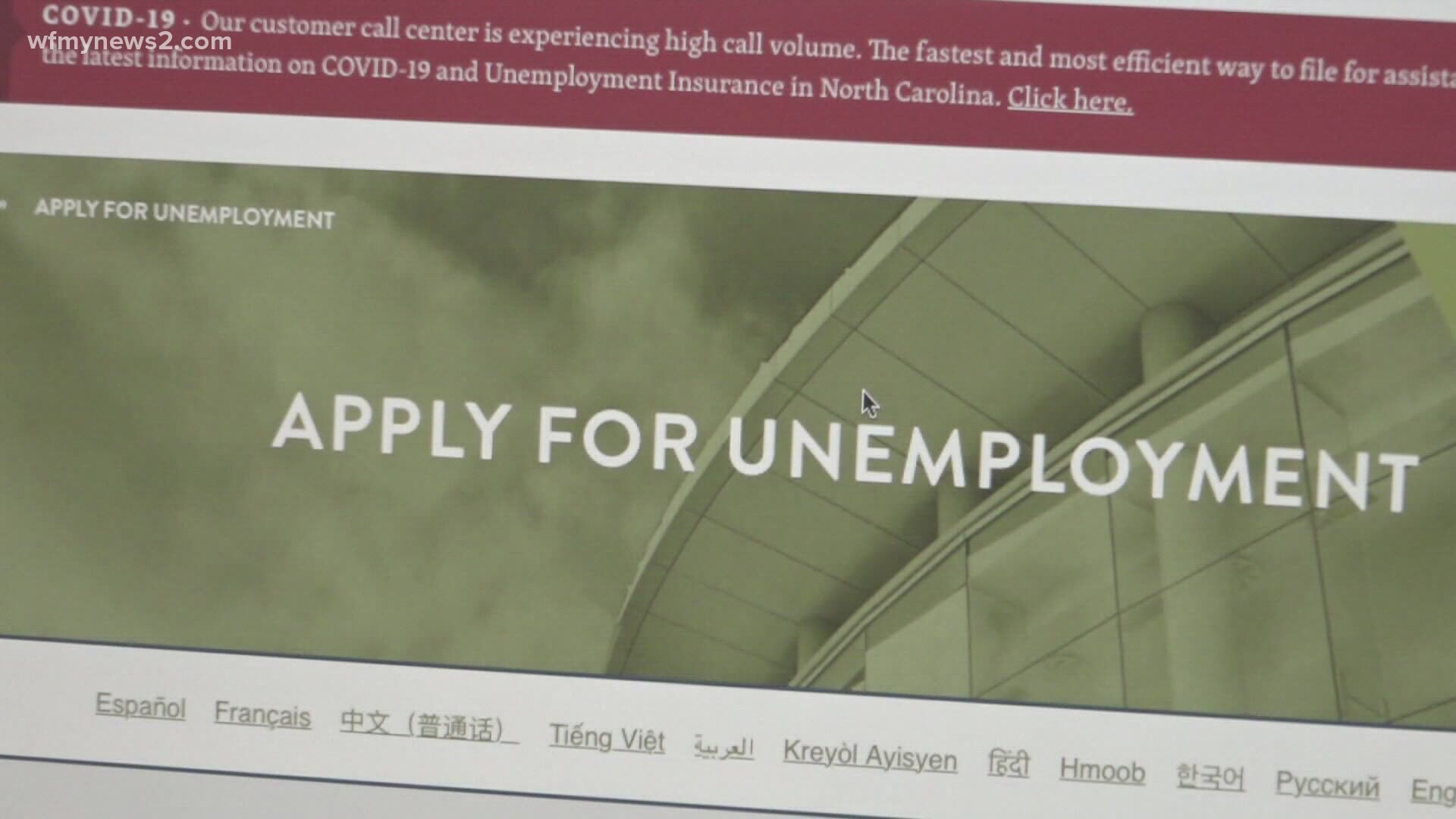GREENSBORO, N.C. — Employers across the Triad continue to report a shortage of workers as the COVID-19 pandemic slows down.
Some are hopeful it will come to an end soon after the state eased coronavirus restrictions.
"We are definitely nowhere where we would want to be or where we would need to be, but we know we’re going to get there," Goodwill Recruiter Shequel Whitehead said.
Whitehead said the Goodwill of Northwest North Carolina has 87 open positions across 58 stores.
"It’s definitely unusual to have this many positions available," Whitehead said.
Many of those positions are on the service side, including jobs as cashiers and donation associates. Whitehead said uncertainty about the pandemic seems to be a concern for some applicants she's interviewed.
Two Greensboro economists agree those safety concerns may be one reason why job growth has been slow.
"There’s still a lot of people out there who are vulnerable to the virus and maybe, quite legitimately, do not want to re-enter the workforce at this point and risk themselves getting infected," Dr. Matthew Schaffer said.
Schaffer is an Associate Economics Professor at UNC Greensboro.
Dr. Scott Simkins, Chair of NC A&T University's Economics department said the lack of new hires is showing up at places like restaurants and retail shops.
"The service industries have particularly taken the brunt of the pandemic economically and now are really seeing a rebound as consumers are back out and businesses are able to operate at higher capacity," Dr. Simkins said.
However, Dr. Schaffer said the highest number of job openings show up in industries like construction, manufacturing and logistics.
"They all require a special set of skills to some degree which takes time to develop so that may be the most concerning factor is more of a structural mismatch and what employers are looking for and what employees have to offer," Dr. Schaffer said.
He also said two other factors might be behind the labor shortage.
"For parents who have students that are doing remote learning, it just may not be an option at this point to re-enter the workforce," Dr. Schaffer said.
The final possible factor, he said, is that some people may not feel the need to return to work because they are receiving unemployment benefits.
Dr. Simkins said all of these factors are happening together in a way that has not happened before.
The labor shortage also comes as the economy moves out of a recession that he said is ending much more quickly than usual.
He believes that's largely due to vaccinations increasing and loosening restrictions.
"It’s the quickness of the rebound that matters here," Dr. Simkins said, "In particular, the new CDC guidelines were unexpected by many people and everyone is now going to be looking and trying to figure out, 'how do we open up and how do we find workers all at the same time?'"
The quick swing of the economy is creating other shortages too. It's not just jobs that are hard to find. Lumber and housing are also in high demand and short supply.
Dr. Schaffer said while that means higher prices on goods in the short term it also means there is an incentive for companies to make more of the products in high demand.
"That does take time and you need the workers to be able to produce more," Dr. Schaffer said.
Both Simkins and Schaffer believe that by the fall, many open job positions will be filled as more people become comfortable with returning to work.
Whitehead said she thinks she's already starting to see signs of improvement.
"I started seeing some signs this week of applicants pools getting higher," Whitehead said, "I’m hoping towards the end of the year sometime that will start to get even higher and even better."
Dr. Simkins said it remains to be seen if the shortages we're seeing now will mean inflation for the post-pandemic economy.

